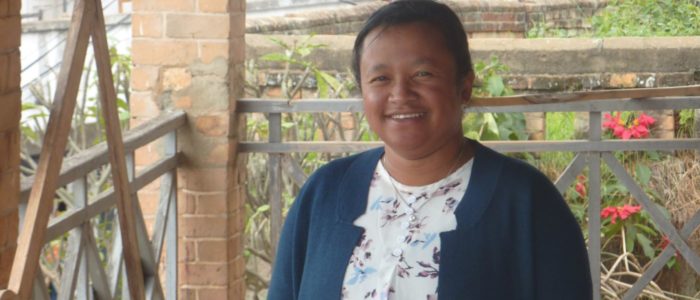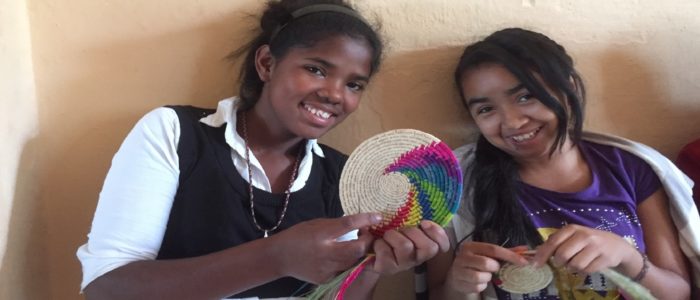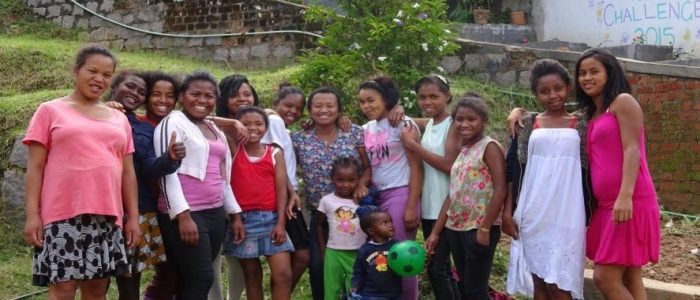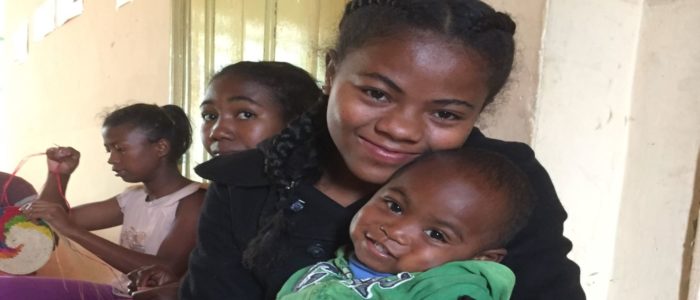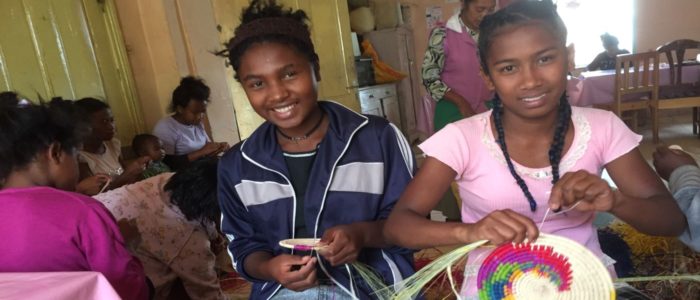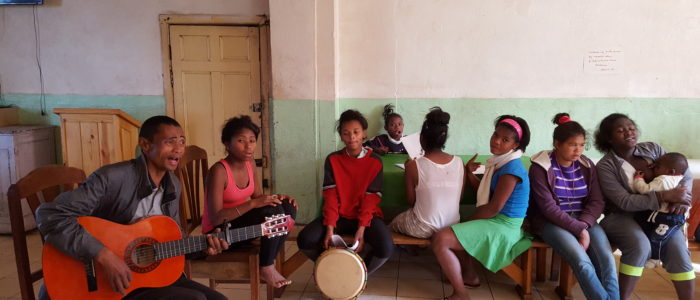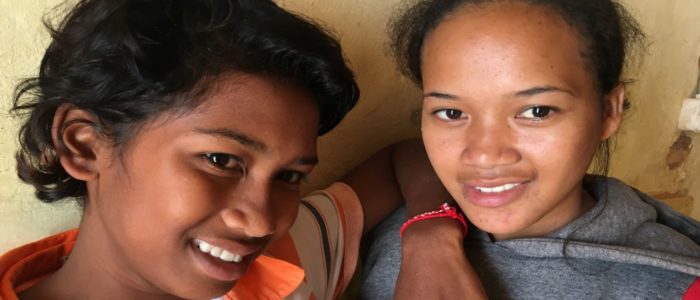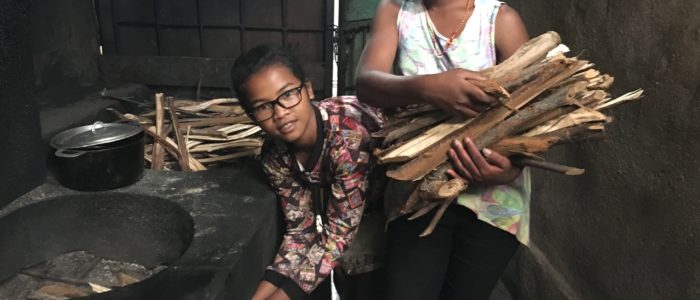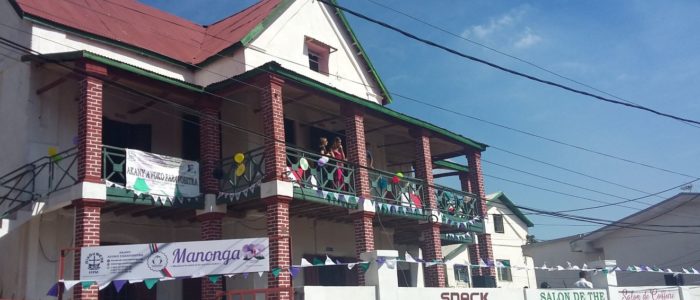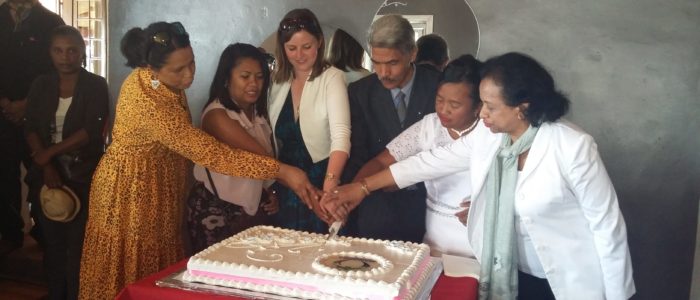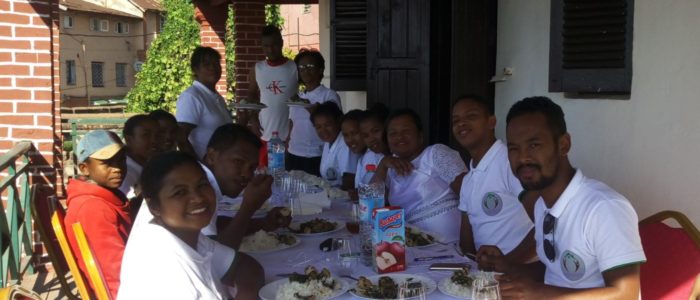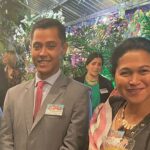Residential Centre for Girls: Akany Avoko Faravohitra
‘This isn’t a job. It’s my life’
Akany Avoko Faravohitra (AAF) is a residential centre to rehabilitate and retrain young girls, and around 85 girls are living there at present. Most of them are in their teens, some are under 12 years old, and some are single mothers. AAF is run by a woman called Hanta Randrianarimalala, alongside a team of 9 members of staff and local and international volunteers. Girls are usually sent to AAF for one of two reasons:
1. They’ve been arrested for minor crimes stemming from their hopeless situations, e.g. stealing food or clothing, prostitution or drugs. Young people come to the capital to find a better life, but there is no work or money there, and they are forced to live on the street or in slums. The girls at the centre are either awaiting a court hearing which could take up to a year, or have already been sentenced. They are sent to the centre for assessment, rather than being sent to prison.
2. They’ve been abused or abandoned by their families, and have been living on the streets from a young age.
For whatever reasons, they are vulnerable, and have had to face dangerous situations and experience trauma and loss. As Hanta said, ‘Our job is to look after them, educate them and protect them.’ Hanta assesses them to find out what educational needs they have. Over half the girls go to the local school, and the rest are taught at the centre. They are also taught practical skills such as embroidery, sewing and dressmaking, as well as parenting skills. The girls are given every support to continue their education or vocational training after leaving the centre. The girls share dormitories, which they themselves are responsible for keeping clean and tidy. Hanta explained that the aim is to help them become independent adults who will contribute to the life of their communities. She said: ‘I want them to have aspirations and feel they are part of society. But above all, I want them to be happy.’
When their time at the centre comes to an end, the girls have to go before the judge of the children’s court. Most hope to rejoin their families and be allowed to go home. Preparing for this is a key part of the work at AAF. An effort is made to contact families, and a programme of meetings is arranged between the girl and her family, under staff supervision. Hanta prepares a detailed report on the girl for court, including suggestions as to what should happen to her. ‘In 99% of cases, the court is prepared to accept my recommendation’, she said, ‘and releases the girl without further punishment.’
AAF is helping to change the lives of poor, vulnerable girls in Madagascar, and is doing so on a very tight budget. They receive no money from the country’s government, nor from any other internal organisation. Most of their money comes from individuals, churches and foreign organisations, and they rely heavily on their sponsorship programme. The monthly cost of running the centre is 8.5 million Ariary (£1,900), and care, food and education for one girl costs around 130,000 Ariary (£30) each month. Lack of funding means that the girls face an uncertain future as they become independent. More funding would enable AAF to help them, and other girls, avoid going to prison and grow up to be happy, independent adults who are an asset to their communities.
Hanta creates a great impression because of her vision and commitment to ensuring the well-being of the girls in her care. It’s obvious that they think the world of her, too. The centre was in a terrible state and had no furniture when she took over, but she worked hard to make the building somewhere worth living in, although considerable work is still needed. Hanta spent a year in a centre similar to AAF when she was in her teens, so she understands the girls’ needs. Later, she had an opportunity to come to Pen-rhys in the Rhondda valley for a while, and that influenced her greatly. Her initial greeting was, ‘Welcome, I’m Hanta from Pen-rhys.’ In her own words, ‘Pen-rhys made me want to be a social worker. While there I realised that if I could help children and young people at Pen-rhys, I could also help children and young people at home’. And she added, ‘This isn’t a job. It’s my life!’
AAF will receive a grant of approx. £46k from the appeal. To find out more about how this will be spent click here…
TYPICAL EXAMPLE COSTS
Supporting a girl at the centre for 1 month: £30
One month’s medical care for 1 girl: around £7
One month’s materials for the girls’ practical education: £150
School materials for 1 girl for a year: £39
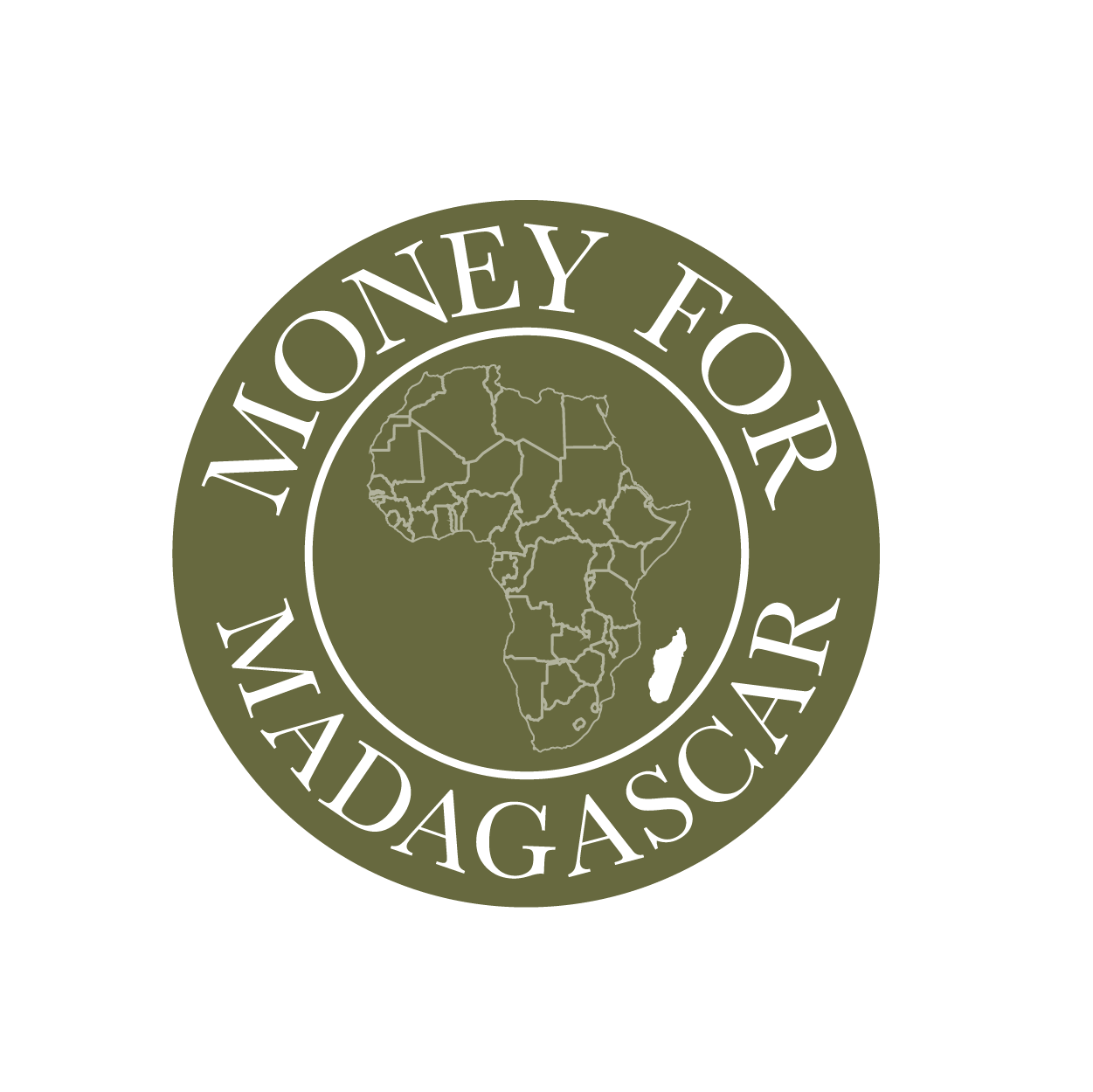

 Cymraeg
Cymraeg
